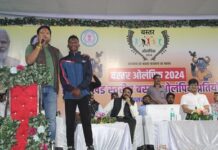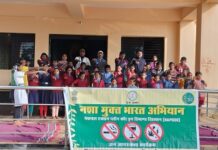The West Bengal government will decide on Friday whether to approach the Supreme Court against a decision by the Calcutta high court that put on hold a controversial order restricting the immersion of idols on Durga Puja on account of Muharram.
The high court pulled up the Mamata Banerjee administration for “arbitrary” use of powers on Thursday and said idol immersion will continue on all days, including October 1, which is Muharram. The state government had banned immersions after 10pm on September 30, the last day of the five-day Puja, and October 1 to ward off possible communal clashes.
“The decision will be finalised at a meeting with the chief minister at midday after considering the pros and cons of the move,” said a senior minister of the state.
Government sources told that a possible petition in the Supreme Court would counter the high court judgment on four counts. First, the petition would say there was no arbitrariness in the administration’s approach as it consulted all communities. Second, curbs on immersions and other revelries are not imposed in West Bengal alone. Third, restrictions were also imposed on Muharram processions, and so, allegations of discrimination against one community weren’t not correct. Fourth, announcing the curbs was a constitutional right bestowed upon the state government.
On Thursday soon after the high court ruling, chief minister Mamata Banerjee expressed her dissatisfaction though she did not mention the verdict. While inaugurating a prominent puja pandal in south Kolkata, she said, “Someone can even slit my throat, but I will not succumb to conspiracy,” she said.
Mamata Banerjee did not clarify who the conspirators were, but it was seen as a veiled reference to the BJP that said the court order unmasked the state government’s communal politics.
The chief minister also said that if there was any violence on October 1, the conspirators would be responsible. Opposition parties such as CPI(M) and Congress have accused the chief minister of ineptly handling the situation.















